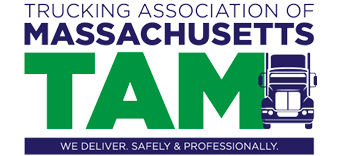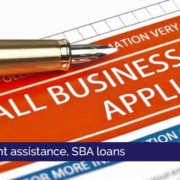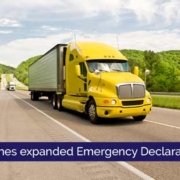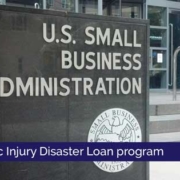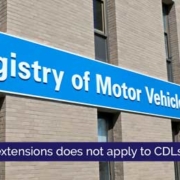TAM continues its outreach with federal and state agencies on issues relating to CDL licensure, vehicle registration, medical cards and other regulatory issues impacting the industry. Please note that the most recent RMV release still maintains the status quo with regards to CDL licenses.
Our hope is that we will see an extension at some point that correlates with changes already made to traditional licenses (60 day extension) , but at the moment we do not. We are also hopeful for a directive from the FMCSA regarding medical cards as well but at this point that too is status quo.
The most recent press release from the RMV regarding their facilities is included below.
Massachusetts RMV Opening 8 Locations with New Protocols Today, March 19
New location protocols will prioritize ONLY transactions that cannot be completed online, over the phone or by mail. Road tests remain suspended through at least March 20.
BOSTON – The Massachusetts Registry of Motor Vehicles (RMV) is announcing that eight of its 30 customer service center locations will be open today, March 19th, while asking that customers who do not have immediate needs for required in-person services delay their visits. These RMV facilities prioritize regional availability, accessibility and facility size and capacity and will prioritize ONLY transactions that cannot be completed online, over the phone or by mail. To assist with “social-distancing” and reducing facility volume, customers are asked to not bring multiple individuals with them. Meanwhile, AAA locations will continue to offer select RMV services to AAA members and road tests will be suspended indefinitely.
Further, new protocols will be in place to mitigate customer queuing. Customers visiting the open centers will be issued tickets on a first-come, first-served basis with priority given to those customers with transactions that cannot be completed online. Tickets will designate for customers whether they will be served in the morning (9 a.m. until 12 p.m.) timeframe or the (12 p.m. until 5 p.m.) timeframe in groupings. Limited tickets will be issued based on the Service Center capacity and number of customers that can be served realistically through the course of the day. Any remaining customers will be asked to leave and return another day.
These steps are being taken following Governor Charlie Baker’s declaration of a State of Emergency the week of March 9th to complement the work that has been underway for weeks across state government to keep residents safe and healthy.
“While we will have eight Registry of Motor Vehicles Service Centers open to address the needs of residents and business customers, we ask the public to respect the new protocols – that only those customers visit who do not have a credential extension, who have an immediate deadline, or who cannot conduct their business online, by phone, or by mail,” said Transportation Secretary and CEO Stephanie Pollack. “Customers who do visit one of the eight centers will need to take a ticket and understand that new protocols are intended to keep them and other members of the public safe and healthy.”
“The RMV is offering priority ticketing for those customers who have essential business that cannot wait as we must strike a balance between continuing with business transactions while protecting the health and safety of the public,” said Acting Registrar Jamey Tesler. “Due to the COVID-19 outbreak, in-person transactions will be conducted in keeping with guidelines from the Massachusetts Department of Public Health (DPH) and Commonwealth’s COVID-19 Response Command Center.”
Only the following eight RMV centers will be open on March 19th and until further notice: Boston/Haymarket, Brockton, Fall River, Lawrence, Pittsfield, Plymouth, Springfield and Worcester. Hearings will be conducted at Boston/Haymarket, Brockton, Fall River, Lawrence, Springfield and Worcester. Hearings at the Pittsfield RMV occur weekly on Wednesdays and are scheduled to resume on March 25th . No hearings will be conducted in Plymouth.
Road tests for permit holders are postponed at all locations through at least Friday, March 20th. Class D and M road tests will resume only after cleaning, personal protective equipment and social distancing protocols have been put in place to mitigate the risk of COVID-19 transmission for permit holders, road test examiners and others who accompany permit holders for their tests. Because the Governor’s Executive Order provides that Learner’s Permits dated between March 1, 2020 and April 30, 2020 will continue to have an active status until sixty days after the printed expiration date.
Earlier this week, the RMV began helping residents with ‘social-distancing’ by reducing the need for some customers to physically come into a Service Center for certain transactions. As of March 16th, the RMV implemented a deadline extension: residents with Class D and Class DM driver’s licenses, ID cards, and Learner’s Permits that have an expiration date between March 1, 2020 and April 30, 2020, will have a 60-day extension applied to that customer’s credential.
This deadline extension does not apply to customers with Commercial Driver’s Licenses (CDLs) or those whose end of stay in the United States is the same as the expiration date on their driver’s license, ID card, or Learner’s Permit.
Customers eligible for this extension should wait to visit an RMV Service Center or AAA office (if a member of AAA), and renew credentials after the State of Emergency is over.
The RMV has taken other steps to help mitigate the spread of COVID-19. In keeping with recommendations from the Massachusetts Department of Public Health (DPH), the RMV has adopted enhanced cleaning practices for facilities, purchased additional contactless hand sanitizer dispensing stations, issued anti-viral disinfectant wipes and individual size hand sanitizers to certain employees, and expanded areas to be disinfected.
During the COVID-19 outbreak, the RMV has continued with safety-critical “back office” functions, even as all Registry customer service locations closed on March 16th and 17th. The critical work of ensuring license discipline continues, including the processing of both in-state and out-of-state convictions and mail.
More than 40 Registry transactions may be conducted online. The Baker-Polito Administration will continue to update the public on COVID-19 response and precautionary measures online.
###
